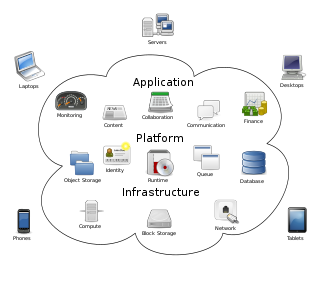
In computing, a database is an organized collection of data stored and accessed electronically. Small databases can be stored on a file system, while large databases are hosted on computer clusters or cloud storage. The design of databases spans formal techniques and practical considerations, including data modeling, efficient data representation and storage, query languages, security and privacy of sensitive data, and distributed computing issues, including supporting concurrent access and fault tolerance.

India is the second most populated country in the world with one-sixth of the world's population. According to official estimates in 2022, India's population stood at over 1.4 billion. According to UN forecasts, in 2023 India will overtake China and become the most populous country in the world.

Statistics is the discipline that concerns the collection, organization, analysis, interpretation, and presentation of data. In applying statistics to a scientific, industrial, or social problem, it is conventional to begin with a statistical population or a statistical model to be studied. Populations can be diverse groups of people or objects such as "all people living in a country" or "every atom composing a crystal". Statistics deals with every aspect of data, including the planning of data collection in terms of the design of surveys and experiments.
Structured Query Language, abbreviated as SQL, is a domain-specific language used in programming and designed for managing data held in a relational database management system (RDBMS), or for stream processing in a relational data stream management system (RDSMS). It is particularly useful in handling structured data, i.e. data incorporating relations among entities and variables.

Extensible Markup Language (XML) is a markup language and file format for storing, transmitting, and reconstructing arbitrary data. It defines a set of rules for encoding documents in a format that is both human-readable and machine-readable. The World Wide Web Consortium's XML 1.0 Specification of 1998 and several other related specifications—all of them free open standards—define XML.

Machine learning (ML) is a field devoted to understanding and building methods that let machines "learn" – that is, methods that leverage data to improve computer performance on some set of tasks. It is seen as a part of artificial intelligence.

R is a programming language for statistical computing and graphics supported by the R Core Team and the R Foundation for Statistical Computing. Created by statisticians Ross Ihaka and Robert Gentleman, R is used among data miners, bioinformaticians and statisticians for data analysis and developing statistical software. Users have created packages to augment the functions of the R language.

Google Maps is a web mapping platform and consumer application offered by Google. It offers satellite imagery, aerial photography, street maps, 360° interactive panoramic views of streets, real-time traffic conditions, and route planning for traveling by foot, car, bike, air and public transportation. As of 2020, Google Maps was being used by over one billion people every month around the world.
Ajax is a set of web development techniques that uses various web technologies on the client-side to create asynchronous web applications. With Ajax, web applications can send and retrieve data from a server asynchronously without interfering with the display and behaviour of the existing page. By decoupling the data interchange layer from the presentation layer, Ajax allows web pages and, by extension, web applications, to change content dynamically without the need to reload the entire page. In practice, modern implementations commonly utilize JSON instead of XML.

Facebook is an online social media and social networking service owned by American technology giant Meta Platforms. Created in 2004 by Mark Zuckerberg with fellow Harvard College students and roommates Eduardo Saverin, Andrew McCollum, Dustin Moskovitz, and Chris Hughes, its name derives from the face book directories often given to American university students. Membership was initially limited to only Harvard students, gradually expanding to other North American universities and, since 2006, anyone over 13 years old. As of December 2022, Facebook claimed 2.96 billion monthly active users, and ranked third worldwide among the most visited websites. It was the most downloaded mobile app of the 2010s.

A CD-ROM is a type of read-only memory consisting of a pre-pressed optical compact disc that contains data. Computers can read—but not write or erase—CD-ROMs. Some CDs, called enhanced CDs, hold both computer data and audio with the latter capable of being played on a CD player, while data is only usable on a computer.

In the pursuit of knowledge, data is a collection of discrete values that convey information, describing quantity, quality, fact, statistics, other basic units of meaning, or simply sequences of symbols that may be further interpreted. A datum is an individual value in a collection of data. Data is usually organized into structures such as tables that provide additional context and meaning, and which may themselves be used as data in larger structures. Data may be used as variables in a computational process. Data may represent abstract ideas or concrete measurements. Data is commonly used in scientific research, economics, and in virtually every other form of human organizational activity. Examples of data sets include price indices, unemployment rates, literacy rates, and census data. In this context, data represents the raw facts and figures which can be used in such a manner in order to capture the useful information out of it.

Cloud computing is the on-demand availability of computer system resources, especially data storage and computing power, without direct active management by the user. Large clouds often have functions distributed over multiple locations, each of which is a data center. Cloud computing relies on sharing of resources to achieve coherence and typically uses a pay-as-you-go model, which can help in reducing capital expenses but may also lead to unexpected operating expenses for users.

Big data primarily refers to data sets that are too large or complex to be dealt with by traditional data-processing application software. Data with many entries (rows) offer greater statistical power, while data with higher complexity may lead to a higher false discovery rate. Though used sometimes loosely partly because of a lack of formal definition, the interpretation that seems to best describe big data is the one associated with large body of information that we could not comprehend when used only in smaller amounts.
Information technology (IT) is the use of computers to create, process, store, retrieve and exchange all kinds of data and information. IT forms part of information and communications technology (ICT). An information technology system is generally an information system, a communications system, or, more specifically speaking, a computer system — including all hardware, software, and peripheral equipment — operated by a limited group of IT users.

TikTok, and its Chinese counterpart Douyin, is a short-form video hosting service owned by the Chinese company ByteDance. It hosts user-submitted videos, which can range in duration from 3 seconds to 10 minutes.













